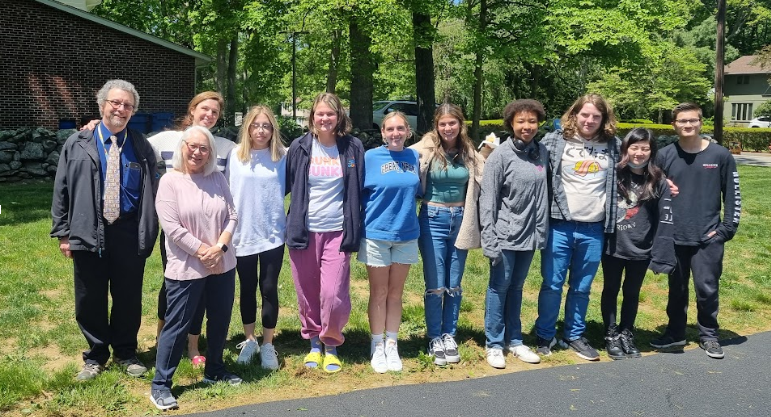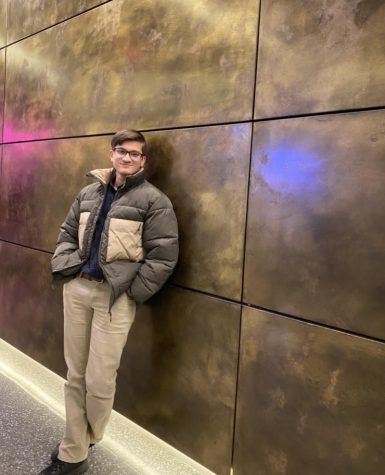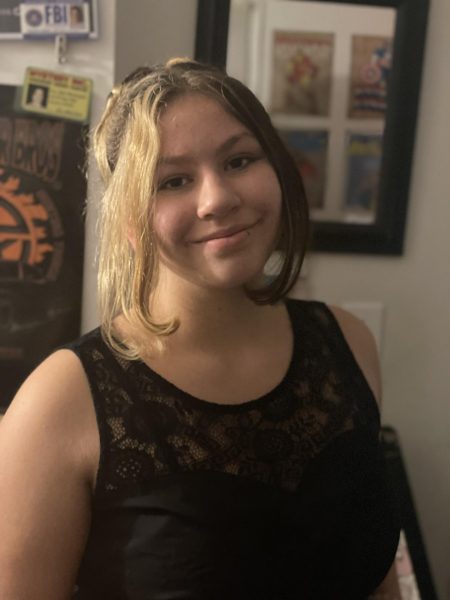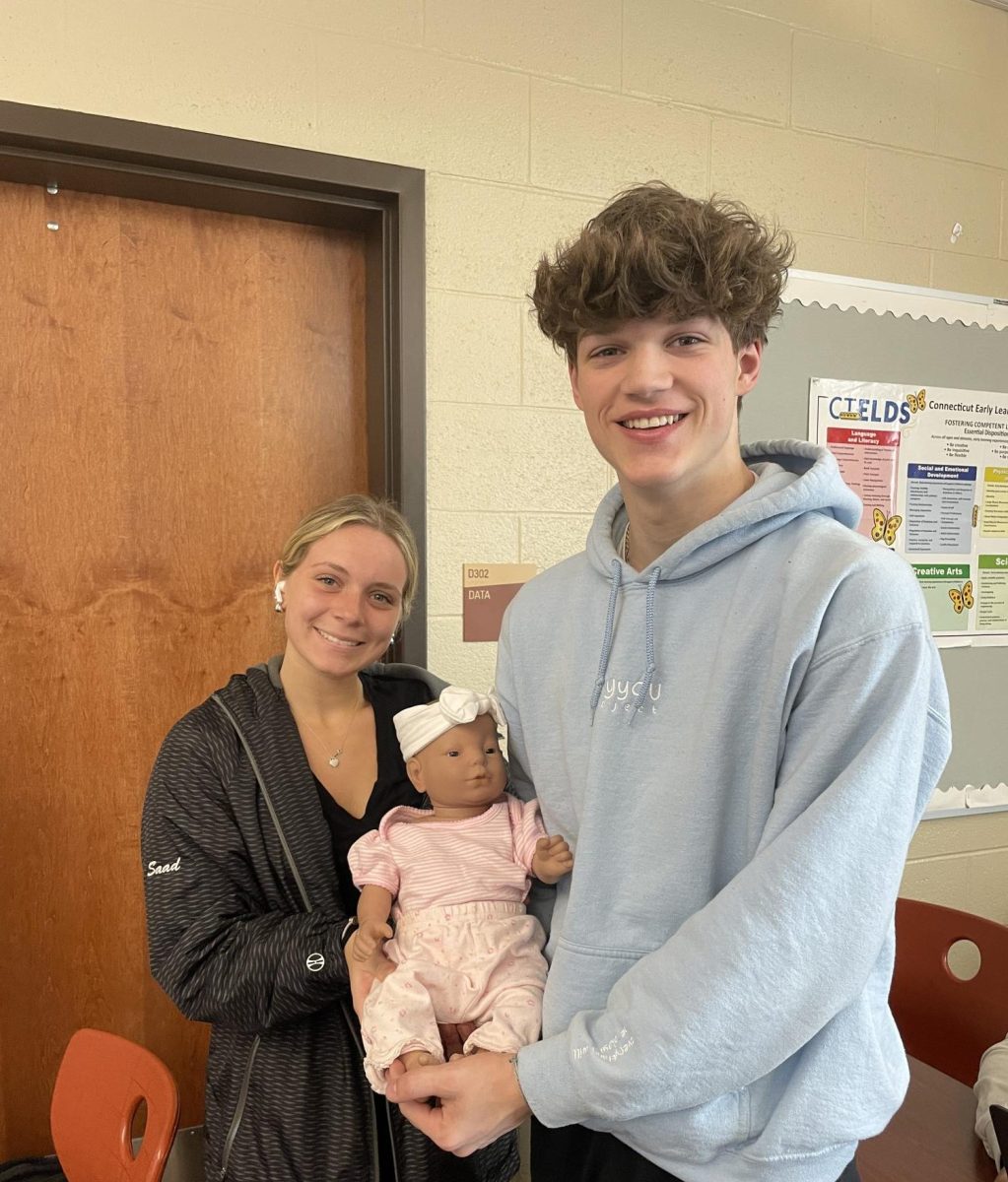“I don’t want it to happen again,” child of Holocaust survivor speaks out
June 8, 2023
Waterford, East Lyme, NFA, and Fisher Island are participating in the Encountering Survivors Program this year. Encountering Survivors is a program that aims to give students a deeper understanding of survivors by having students attend meetings with a child of a Holocaust survivor. Waterford’s host’s was Rosa Goldblatt, who lives in Norwich, CT
The program goes beyond the connection students can get in a classroom since students are able to speak with a survivor in person. “The hope is that the personal encounter can bring not only a deeper understanding of the Holocaust and its atrocities, but also fight antisemitism, prejudice and bigotry,” says program coordinator Ella Sackett.
Rosa Goldblatt’s parents, Hanadel and Sophie Drobiarz, were Holocaust survivors. She partnered with the Jewish Federation Strochlitz Holocaust Resource Center, who are the ones organizing the Encountering Survivors program, to tell her parents’ story.
Rosa’s father, Hanadel Drobiarz (later Americanized as Henry Drobiarz), was born in Sosnowiec, Poland to parents who were traders. Hanadel was enrolled into Jewish education and lived an orthodox life. Not knowing how it would save his life, at the age of 14, Hanadel was told to leave his family and learn a trade. He chose to move to Kozlow, Poland, where he spent six years in Sosnowiec with his uncle to learn the trade of being a tinsmith.
Henry was in Sosnowiec until the war broke out in 1939. Rumors of the Nazi invasion were heard, though the citizens around did not truly believe the Nazi invasion would be as severe as it was. Eventually the Nazi invasion reached Drobiarz. He was imprisoned by the Nazis and marked “KL” (Konzentrationslager, which means concentration camp). Forced into labor, the Nazis made him use his trade as a tinsmith to create war weapons and artillery. In Rosa’s words, this is what “kept him alive.” He went to nine different work camps.
On Fridays, people would be forced to go to the center of town. This conflicted with the Jewish people in the area, who met for a biblical tradition on Fridays. In an act of defiance, Hanadel and his peers hid during the forced gatherings.
During the war, “[Jews] had to find a way to live,” Rosa says. Small amounts of bread and coffee were the regular meals for those in the concentration camps. Prisoners would be disrobed and pushed into buildings for food alone. For those in hiding, they would be commonly put in small areas; around 20 people in one bedroom apartments in ghettos.
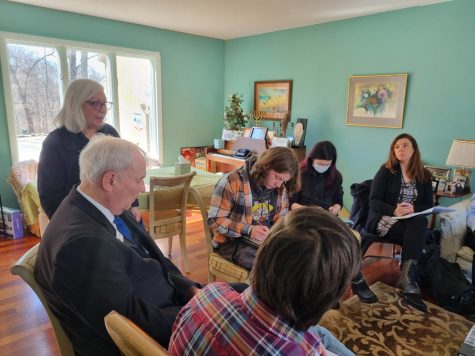 In May 1945, when the Nazis were gone, the prisoners in the concentration camp were in disbelief. They were reluctant to leave. Some didn’t believe that this could be real. Hanadel chose to leave and see the truth: the Americans had finally liberated them.
In May 1945, when the Nazis were gone, the prisoners in the concentration camp were in disbelief. They were reluctant to leave. Some didn’t believe that this could be real. Hanadel chose to leave and see the truth: the Americans had finally liberated them.
Rosa says Handel declared April 25th as a “second birthday” or “the day he became free.”
In March of 1950, Hanadel got a job in New York City at a factory, which would pay him $2.75 an hour. Within six months, he married Rosa’s mother, Sophie. Hanadel conformed to life in America after the war, buying property in Connecticut with help from Jewish organizations.
The truth of her parents was only revealed to her when she saw her father doing a presentation on his journey as a Holocaust survivor. In fact, growing up, the pain of the Holocaust was suppressed from her. While she went into detail with her father, many details with her mother, also a survivor, remain unknown.
Rosa is fascinated with how her father was never “bitter” at life after, and how he made the most of it while he could, often by being an active participant in government committees.
Rosa feels that there’s a “whole piece of [her] life that [she] missed.” While she was able to pick up a lot of her information from her father, there’s still many things that are left in the air for her to ask because many documents of Rosa’s relatives and family are absent to this day. As a result, if there’s one thing she wants people to do, it’s to talk with your family. “Without your history you won’t be complete,” Rosa says.
Rosa continues to welcome people in her home to tell their story. To her, the remnants of what she can remember is all too important not to share. “I don’t want it to happen again,” she stated. The importance of spreading the word and knowledge of what happened during these horrific times is what motivates her to keep going at her age.
Students interested should know that AP European History and War in Literature classes often have the program incorporated into the coursework for the students. “At the end of the day, however, all students are welcome and encouraged to be part of this,” Mrs. Peluso added.


